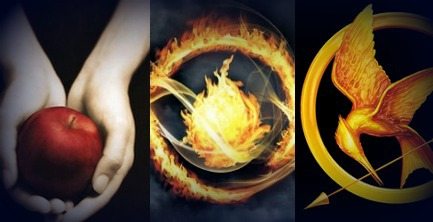Feminist Blockbuster: A new genre ready to catch fire?
With the release of the new young adult franchise Divergent many questions arise: how can we explain the female centric blockbusters trend of the last few years? Is the existence of Hunger Games the reason that made the critics turn their back on Divergent?
Everything started with the adaptation of Stephanie Meyer’s Twilight in 2008, few want to admit it but it was a revolution. It was not the type of revolution many were hoping for, but still, a feminist box-office revolution which probably originated from the lack of young female role models in the film industry. What matters is that Twilight had such an enormous success thanks to its cast in which starred women for most of the supporting roles. To put in another way there were no degrading Alice Eve in her underwear (Star Trek into Darkness), or overly sexualised Michael Bay woman, but actual characters that young women could relate to. Twilight was still a success despite it being harshly criticized, it proved that there was a prominent and powerful market for blockbusters franchises which aimed at women.
In 2012 Suzanne Collins’ Hunger Games adaptation was released and it changed many things. While many kept calling it the new Twilight, its realism and violence started to lure in the male audience. The character of Katniss Everdeen (Jennifer Lawrence), her visible strength and her tendency to mask her true feelings through a layer of responsibilities and sexual stereotypes, helped as well the male audience to engage with the franchise and the new genre. Today this interest in the genre might though come from other sources as well: with the release of Divergent half the total of the audience had read the book before seeing the adaptation, against 76% for Hunger Games. It seems legitimate to note that the adaptation of Veronica Roth’s Divergent lured many of Katniss Everdeen’s fans because of the franchises’ resemblances.
One could start by comparing the main characters of both Divergent and Hunger Games: Tris is considered different from Katniss because lacks perfection. She chose to become a Dauntless, not to protect people but to fulfill her selfish desire of adventure and unlike Katniss she is not a hero. Tris seems a flesh and blood teenager, confused, angry, aroused and claiming her right to be like all the other teenagers. As the audience knows, this is not possible since she is a divergent, a mysterious trait of her personality that is never fully explained and easily forgotten. The only definition available still remains a divergent is someone who displays more than one of the five traits (honesty, peace, selflessness, knowledge and courage) like technically every normal human being. If one would like to expand on the five factions one should ask himself why in Divergent the trait of a faction does not reflect the place of living as well. This was wonderfully done in Hunger Games but not in Divergent that lacks originality in building a new post-apocalyptic Chicago. Most of the action, for example, takes place in a hole in the Dauntless faction which could be situated anywhere. It is because of this sense of lack of place that the movie loses a lot of its original science fiction tag.
The way these three franchises treat the theme of love is interesting, for instance, in Divergent the absence of the love triangle unexpectedly makes the love affair between Tris and Four (Theo James) predictable and less exciting. The love triangle in Twilight is useless because the audience knows from the beginning that Edward (Robert Pattinson) is Bella’s love, in Hunger Games it is Katniss’ not the most important issue. She decides to focus on protecting her family from the Capitol, the people of the revolution, and herself. Many fans however, kept criticizing her character since she almost never knows what she felt about whom, while Tris’ devotion to Four is never doubted and is always represents a strong pillar in her life. Divergent fans’ also strongly criticised the love for Bella in Twilight since she is ready to leave everything behind to be with Edward. The truth is that they do not usually consider the fact that Tris in the movie almost never seems to think about the fate of her family or friends until it is too late. In her situation she does not even have to make a choice, the audience has the horrible and redundant feeling that Tris’ life spins around Four.
Divergent fails from the beginning to create the illusion of stability that in the future will be broken.
Chastity is another strong connection between these young adult franchises: while in Twilight the sexual act leads straight to pregnancy, in Hunger Games this doesn’t happen because Katniss never has time to think about the possibility. Alongside this there is no evidence of pregnancy in Divergent but Tris’ recurrent nightmare is her feat of disappointing Four in her performance.
Many claim that one of the main differences between Hunger Games and Divergent is that while the first system needs to be dismantled, the second one needs to be protected. Divergent though, fails at explaining how the factions originated and what keeps the people of Chicago from showing all their human traits. Divergent fails from the beginning to create the illusion of stability that in the future will be broken. It raises also several questions that remain unanswered because we are forced to follow the journey of an uninteresting teenager. Why is the test useful since you are supposed to ignore it, whether it pushes you away from your parents’ faction or whether it is not what think would suit you? Is this kind of mind control that operates within families socially accepted by everyone?
The director of Divergent, Neil Burger, seems more concerned about luring the audience of the previous franchises and the lovers of the books than about creating a standalone movie. His direction did not only confuse the audience but also forgot to reinvent some aspects of the novel which functioned merely as plot devices and were left unexplained. The class resentment, for instance, that starts the war, rises from nowhere and is not shown to the audience.
Divergent’s plot is also in the end unoriginal if one starts analysing it: the main characters are stereotypical teenagers who enjoy a life of freedom with their friends, away from any parental control. The characters are subjected to final exams of real life that are mythicised into life or death trials. One could even interpret the division of Chicago in several factions as American secondary school division into groups: clever, nerds, popular, goths etc.
The comparison between these franchises highlights several problems that could probably not be found without other young adult franchises in mind. If the goal was to create strong young female role models in the film industry it seems obvious to the audience that, from a feminist point of view, Katniss is definitely a stronger choice. Tris is just a normal flesh and blood teenager, who would like to be like her.
Do you agree? Let us know on Twitter.




Comments